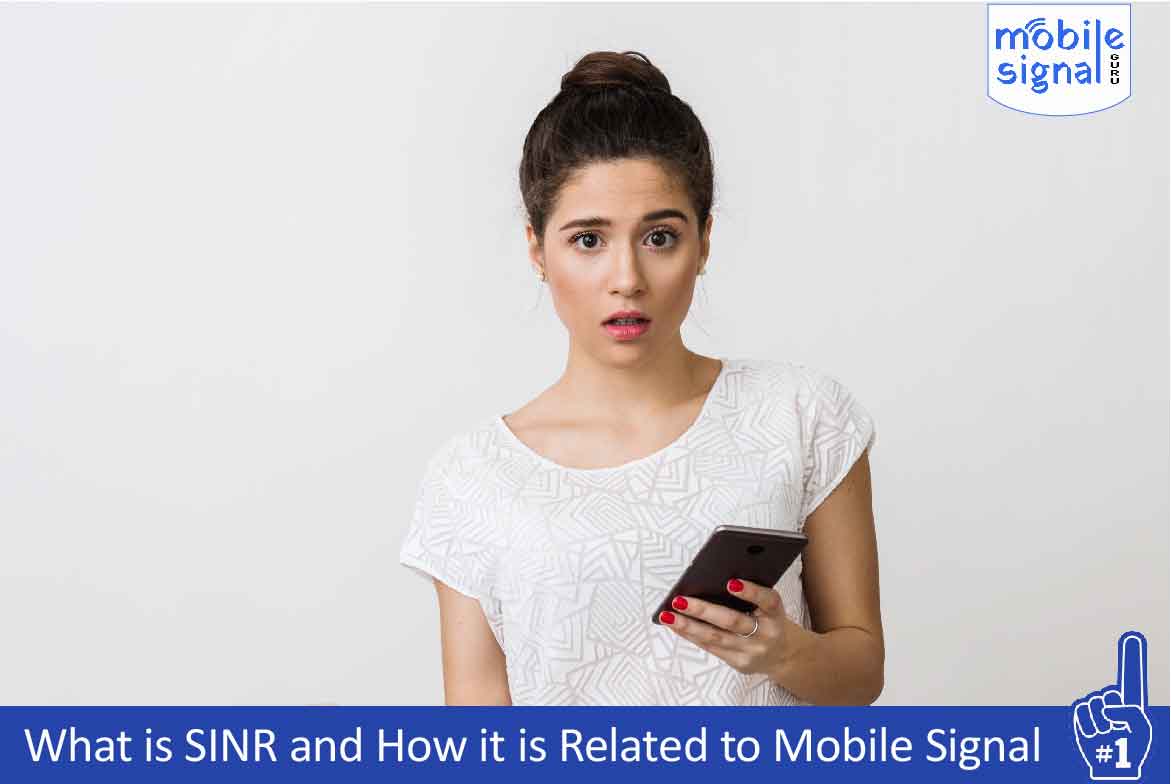In the modern world, having a strong mobile signal is essential for clear calls and fast data speeds. Whether you’re making important calls, streaming your favorite content, or browsing the web, signal quality plays a crucial role. One term that is often mentioned when talking about mobile signals is SINR (Signal-to-Interference-plus-Noise Ratio). This article will explain what SINR is, its impact on your mobile experience, and how mobile signal boosters can improve your call quality and data speed.
1. What is SINR?
SINR stands for Signal-to-Interference-plus-Noise Ratio. It measures the quality of the mobile signal received by your device. SINR compares the strength of the desired signal to the unwanted interference and noise from the environment.
- Signal: The mobile signal that carries your data or voice.
- Interference: Unwanted signals from other sources (like other devices or networks).
- Noise: Random fluctuations or disturbances that affect signal quality.
The higher the SINR value, the better the signal quality. A higher SINR means clearer calls and faster data speeds. On the other hand, a low Signal-to-Interference-plus-Noise Ratio can cause poor call quality, dropped calls, or slow internet speeds.
2. How SINR Affects Mobile Calls and Data
SINR directly impacts your mobile experience. Here’s how:
- Voice Calls: If your Signal-to-Interference-plus-Noise Ratio is low, you may experience dropped calls, delayed audio, or static noise. A high SINR ensures that your calls are clear and uninterrupted.
- Data Speeds: Signal-to-Interference-plus-Noise Ratio also affects your download and upload speeds. A poor SINR will result in slow loading times, buffering while streaming, or lag when browsing the internet.
In summary, a higher SINR means better performance for both calls and data.
3. Understanding SINR vs. SNR
It is important to differentiate between SINR and SNR (Signal-to-Noise Ratio). While they are related, they measure slightly different aspects of signal quality:
- SINR includes interference from other sources, which can affect mobile network performance. It’s more accurate in evaluating real-world conditions.
- SNR only considers noise, excluding interference.
In mobile networks, SINR is typically more useful because it considers the full range of factors that can degrade signal quality.
4. Common Causes of Poor Signal-to-Interference-plus-Noise Ratio
Several factors can lead to a poor Signal-to-Interference-plus-Noise Ratio, which can degrade your mobile experience:
- Distance from Cell Tower: The further you are from a cell tower, the weaker your signal becomes.
- Physical Obstructions: Walls, buildings, and other physical barriers can block signals, reducing SINR.
- Network Congestion: When too many people use the same network, interference increases.
- Electromagnetic Interference: Devices like microwaves, Wi-Fi routers, or even other mobile phones can cause signal disruption.
- Weather Conditions: Heavy rain or storms can also impact signal quality.
Understanding these causes is crucial for improving your SINR and, in turn, your mobile signal quality.
5. How SINR Affects Call Quality
SINR plays a vital role in ensuring clear and smooth voice calls. Here’s how poor Signal-to-Interference-plus-Noise Ratio affects calls:
- Audio Distortion: If interference or noise overwhelms the signal, your voice may sound garbled or robotic.
- Dropped Calls: Low Signal-to-Interference-plus-Noise Ratio can cause calls to drop unexpectedly.
- Echoing: Low Signal-to-Interference-plus-Noise Ratio can cause echoes during calls, making conversations harder to understand.
To avoid these issues, it’s essential to boost your Signal-to-Interference-plus-Noise Ratio to ensure that calls are clear and reliable.
6. The Role of Mobile Signal Boosters in Improving SINR
Mobile signal boosters are devices designed to amplify weak signals, improving Signal-to-Interference-plus-Noise Ratio and overall mobile performance. Here’s how they help:
- Amplification: Signal boosters take the weak incoming signal and amplify it, improving Signal-to-Interference-plus-Noise Ratio.
- Minimize Interference: Some signal boosters are designed to filter out interference and noise, ensuring cleaner signals.
- Enhanced Coverage: Boosters can increase signal strength in areas that are typically “dead zones,” such as basements or remote locations.
By improving SINR, signal boosters help restore high-quality call experiences and faster data speeds.
How Signal Boosters Work to Improve SINR
Signal boosters consist of three key components:
- External Antenna: This antenna receives the weak mobile signal from nearby cell towers.
- Amplifier: The signal is sent to the amplifier, which strengthens it.
- Internal Antenna: This antenna broadcasts the amplified signal inside your home or office.
These components work together to boost Signal-to-Interference-plus-Noise Ratio by improving signal strength, reducing interference, and filtering out noise. This results in better call quality and faster internet speeds.
Choosing the Right Signal Booster
When selecting a mobile signal booster, consider the following:
- Coverage Area: Choose a booster that matches the size of the area you need to cover (home, office, vehicle, etc.).
- Carrier Compatibility: Ensure the booster works with your mobile carrier.
- Frequency Band: Check that the booster supports the correct frequency bands used by your carrier.
- Installation Type: Some boosters require professional installation, while others can be set up easily by the user.
Choosing the right booster ensures optimal performance and better Signal-to-Interference-plus-Noise Ratio.
Benefits of Using a Mobile Signal Booster
Using a mobile signal booster offers several advantages, including:
- Better Call Quality: Clearer voice calls with fewer drops or interruptions.
- Faster Data Speeds: Improved internet speeds for browsing, streaming, and gaming.
- Reliable Connectivity: Stay connected even in remote or low-signal areas.
- Increased Battery Life: With a stronger signal, your phone uses less power to connect to the network, which helps extend battery life.
In short, mobile signal boosters improve SINR and offer a more reliable mobile experience.
Conclusion
SINR is a key factor in determining the quality of your mobile calls and data speeds. A high SINR ensures clear calls, fast internet, and a reliable mobile experience. However, poor SINR can lead to dropped calls, slow data, and frustrating connectivity issues. Thankfully, mobile signal boosters can help by improving SINR, boosting signal strength, and minimizing interference and noise. By choosing the right booster, you can significantly enhance your mobile experience, whether you’re at home, in the office, or on the go.
If you’re struggling with weak mobile signals, investing in a mobile signal booster is an excellent way to improve call quality and data speeds. With a stronger, more reliable connection, you’ll enjoy uninterrupted calls and faster internet, no matter where you are.
By following this guide, you should have a clear understanding of SINR, its impact on mobile signal quality, and how mobile signal boosters can make a significant difference in your daily mobile experience.
 Australia (AUD)
Australia (AUD) Denmark (DKK)
Denmark (DKK) France (EUR)
France (EUR) Germany (EUR)
Germany (EUR) Ireland (EUR)
Ireland (EUR) Malta (EUR)
Malta (EUR) Netherlands (EUR)
Netherlands (EUR) New Zealand (NZD)
New Zealand (NZD) Norway (NOK)
Norway (NOK) Spain (EUR)
Spain (EUR) Sweden (SEK)
Sweden (SEK) UAE (AED)
UAE (AED) United Kingdom (GBP)
United Kingdom (GBP)
